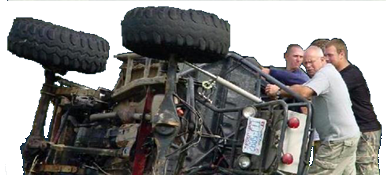hscrugby
Well-Known Member
- Joined
- Mar 22, 2005
- Location
- Raleigh, NC
OK, so Monday night my Jeep starts making a super loud god awful, holy cow I just threw a rod and she's out the side of the engine type noise.
It was loud enough my roommate two cars in front with his windows up heard it.
I'm slowly uploading a video with the noise, but it's hard to tell just how loud it was.
I've pulled the intake/exhaust manifolds off, no cracks, pulled the valve cover off, looked at everything, no ideas.
The weird thing, after it started making that noise, it drove fine. (until I started taking the engine apart obviously.)
No power loss, no engine codes, nothing. Just a HORRIBLE noise.
Anyone got any guesses on what I can look for in the mean time?
here is the video:
It was loud enough my roommate two cars in front with his windows up heard it.
I'm slowly uploading a video with the noise, but it's hard to tell just how loud it was.
I've pulled the intake/exhaust manifolds off, no cracks, pulled the valve cover off, looked at everything, no ideas.
The weird thing, after it started making that noise, it drove fine. (until I started taking the engine apart obviously.)
No power loss, no engine codes, nothing. Just a HORRIBLE noise.
Anyone got any guesses on what I can look for in the mean time?
here is the video:





